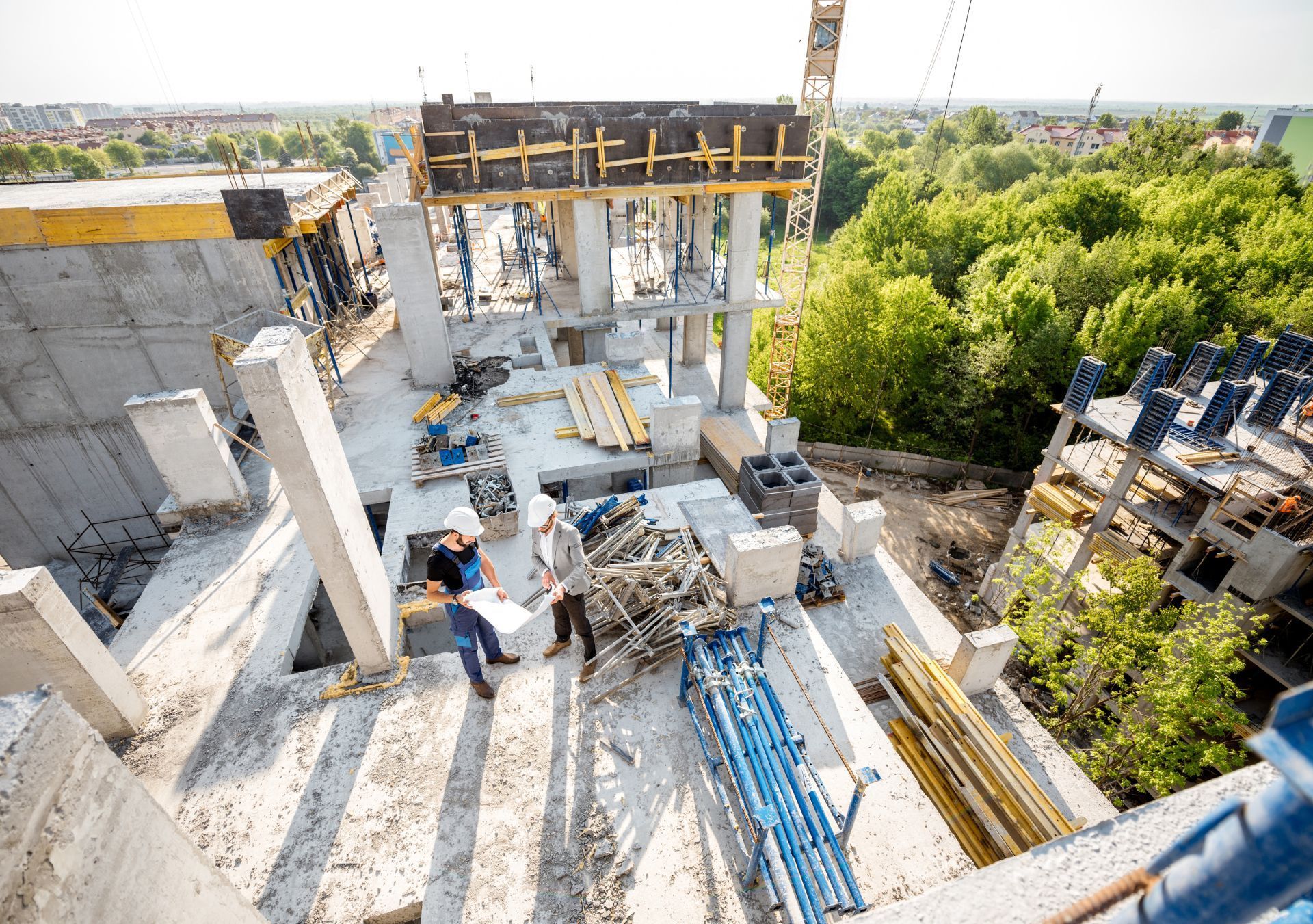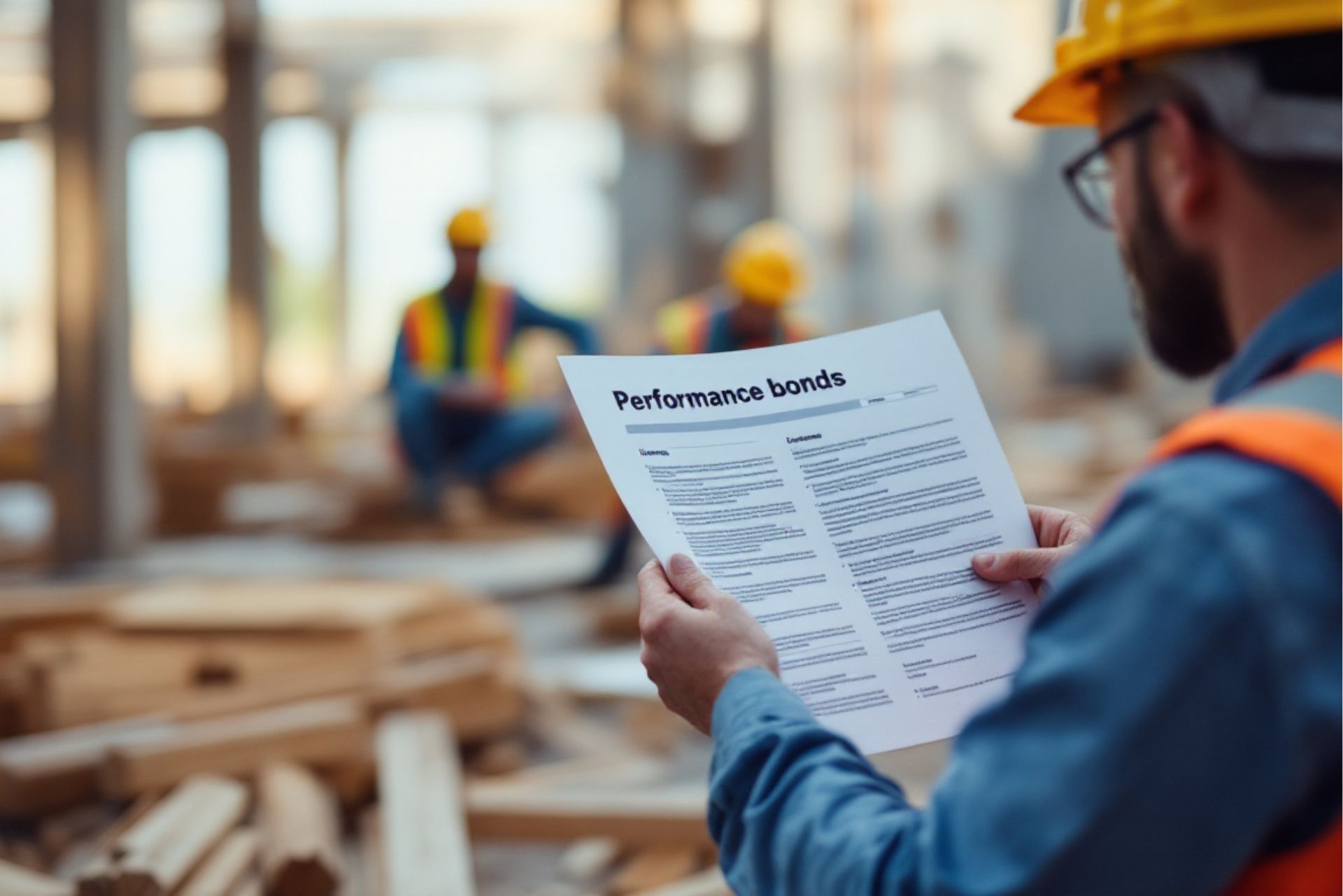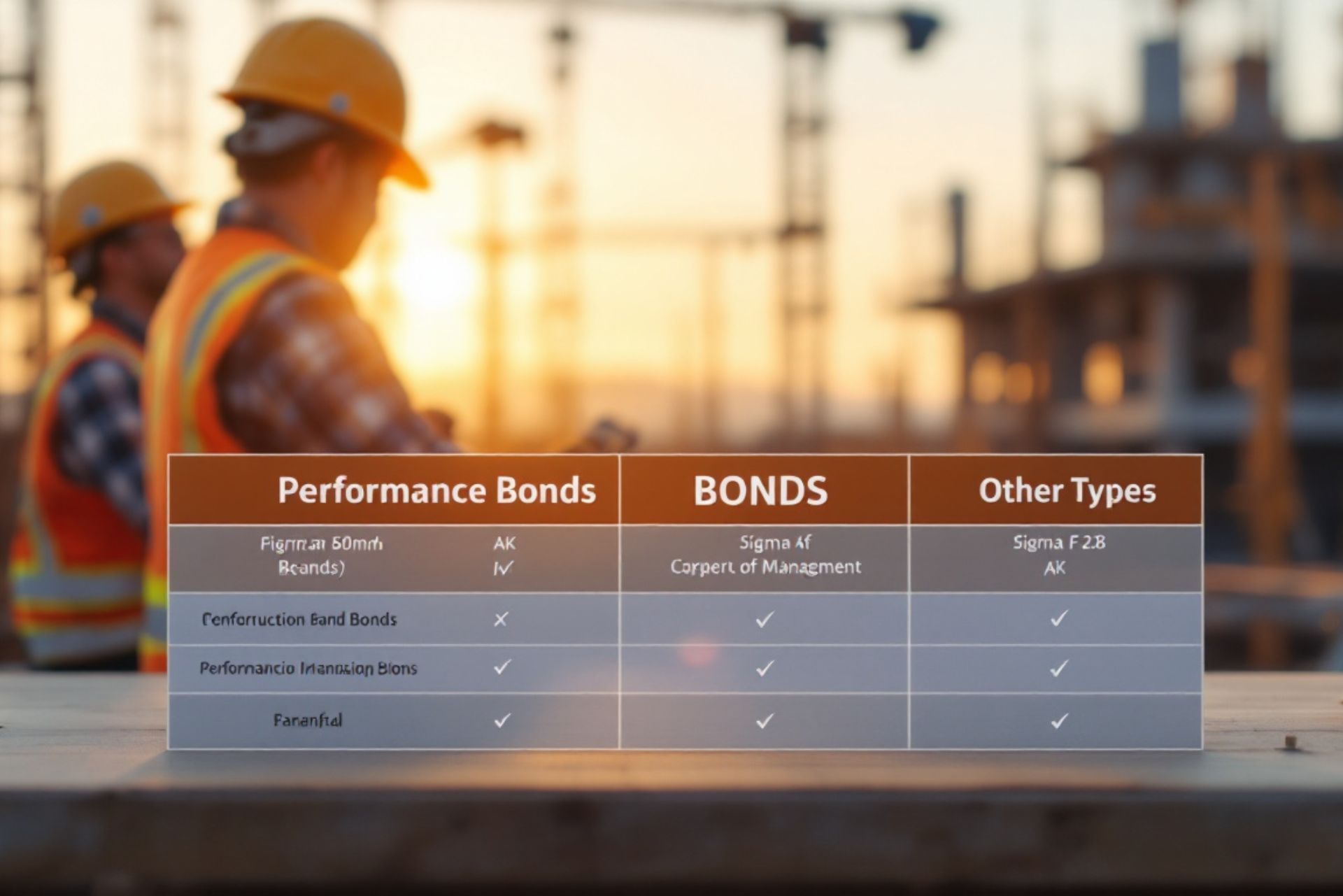
Most Common Business Policies
Index
Contact Us
Performance bonds are crucial instruments in the construction and contracting industries, particularly in Arizona. They serve as a guarantee that a contractor will fulfill their obligations as outlined in a contract. Understanding performance bonds can help contractors, businesses, and project owners navigate the complexities of construction projects with confidence.
What is a Performance Bond?
A performance bond is a type of surety bond that ensures the completion of a project according to the terms and conditions of a contract. If a contractor fails to meet their obligations, the bond provides financial compensation to the project owner or stakeholders. This financial safety net is essential in maintaining trust and accountability in the construction industry.
In Arizona, performance bonds are often required for public contracts, ensuring that taxpayer money is protected. However, they can also be beneficial for private projects, providing peace of mind to all parties involved. By requiring a performance bond, project owners can mitigate risks associated with contractor defaults, which can lead to costly delays and additional expenses. This practice not only safeguards investments but also promotes a sense of responsibility among contractors, knowing that their financial credibility is on the line.
Key Components of a Performance Bond
Performance bonds consist of three parties: the principal (the contractor), the obligee (the project owner), and the surety (the bonding company). Each party has specific roles and responsibilities:
- Principal: The contractor who is responsible for completing the project.
- Obligee: The party that requires the bond, typically the project owner or government entity.
- Surety: The bonding company that issues the bond and guarantees the contractor's performance.
When a performance bond is issued, the surety assesses the contractor's financial stability, experience, and ability to complete the project. This evaluation is critical in determining the bond amount, which is usually a percentage of the total contract value. The surety's thorough vetting process helps ensure that only qualified contractors are entrusted with significant projects, thereby reducing the likelihood of disputes and enhancing overall project success.
Types of Performance Bonds
There are several types of performance bonds, each serving different purposes. In Arizona, the most common types include:
- Contract Performance Bonds: These bonds guarantee that the contractor will complete the project as per the contract terms.
- Bid Bonds: These bonds are submitted with a bid to ensure that the contractor will honor their proposal if awarded the contract.
- Maintenance Bonds: These bonds cover the contractor's obligations to repair or maintain the project after completion for a specified period.
Additionally, there are other specialized bonds, such as supply bonds, which ensure that materials and supplies will be delivered as promised, and subdivision bonds, which guarantee that developers will complete infrastructure improvements in new residential areas. Each type of bond serves to protect different aspects of a project, reinforcing the importance of financial security and accountability in various construction scenarios. By understanding the nuances of these bonds, project owners can better navigate the complexities of construction contracts and ensure that their investments are safeguarded throughout the project lifecycle.

Why Are Performance Bonds Important in Arizona?
Performance bonds play a vital role in Arizona's construction industry for several reasons. They not only protect project owners but also contribute to a healthier business environment overall.
Protection for Project Owners
One of the primary reasons for requiring performance bonds is to protect project owners from financial loss. If a contractor fails to complete a project or does not meet the quality standards outlined in the contract, the performance bond ensures that funds are available to cover the costs of hiring another contractor to finish the job.
This protection is especially important for public projects, where taxpayer money is at stake. Performance bonds help ensure that public funds are used responsibly and that projects are completed on time and within budget. In Arizona, where infrastructure development is crucial for accommodating the growing population and economic expansion, the assurance provided by performance bonds becomes even more significant. They act as a safety net, allowing project owners to move forward with confidence, knowing that they have a financial recourse in case of contractor failure.
Encouragement of Responsible Contracting
By requiring performance bonds, Arizona encourages contractors to maintain high standards of performance and accountability. The need for a bond often motivates contractors to carefully assess their capabilities before taking on projects, reducing the likelihood of default and ensuring that only qualified contractors are awarded contracts.
This environment fosters a competitive marketplace where quality work is prioritized, ultimately benefiting the entire construction industry. Moreover, performance bonds can enhance a contractor's reputation; those who consistently deliver quality work and fulfill their obligations are more likely to secure future contracts. This cycle of accountability not only elevates the standards within the industry but also encourages innovation and efficiency, as contractors strive to distinguish themselves from their competitors. As a result, the construction landscape in Arizona becomes a breeding ground for skilled craftsmanship and reliable service, which is essential for the state's ongoing development and prosperity.
How to Obtain a Performance Bond in Arizona
Obtaining a performance bond in Arizona involves several steps. Contractors must navigate the bonding process carefully to ensure they secure the necessary bonds for their projects.
Assessing Bonding Requirements
The first step in obtaining a performance bond is to understand the specific bonding requirements for the project. This information can usually be found in the contract documents or by consulting with the project owner or a bonding agent.
It's essential to determine the bond amount, which is typically a percentage of the total contract value. In Arizona, this percentage can vary based on the project's size and complexity, as well as the requirements set forth by the obligee. Additionally, contractors should be aware that some projects may have unique stipulations that could affect the bonding process, such as local regulations or specific industry standards that must be adhered to.
Choosing a Surety Company
Once the bonding requirements are understood, the next step is to choose a reputable surety company. Contractors should research various bonding companies, considering their financial stability, reputation, and experience in the industry.
It’s advisable to work with a surety that specializes in performance bonds and has a solid track record in Arizona. This ensures that the contractor receives the best possible service and support throughout the bonding process. Furthermore, contractors should consider seeking recommendations from peers or industry associations, as firsthand experiences can provide valuable insights into the reliability and responsiveness of different surety companies.
Submitting the Bond Application
After selecting a surety company, contractors must complete a bond application. This application typically requires detailed information about the contractor's financial history, experience, and the specifics of the project.
The surety will review the application and may request additional documentation, such as financial statements and references. Once the application is approved, the surety will issue the performance bond, which the contractor can then submit to the project owner. It's important for contractors to be prepared for this stage by gathering all necessary documentation in advance, as this can expedite the approval process. Additionally, maintaining open communication with the surety can help address any concerns that may arise during the review, ensuring a smoother path to securing the bond.
Cost of Performance Bonds in Arizona
The cost of performance bonds can vary significantly based on several factors. Understanding these factors can help contractors budget appropriately for their projects.
Factors Influencing Bond Costs
Several key factors influence the cost of performance bonds, including:
- Creditworthiness: A contractor's credit score and financial stability play a significant role in determining bond costs. Contractors with strong credit histories may qualify for lower rates.
- Project Size and Complexity: Larger and more complex projects typically require higher bond amounts, leading to increased costs.
- Experience and Track Record: Contractors with a proven history of successful project completion may receive more favorable rates compared to those with less experience.
Typical Rates for Performance Bonds
In Arizona, performance bond rates generally range from 0.5% to 3% of the total contract value. For example, a contractor bidding on a $1,000,000 project might expect to pay between $5,000 and $30,000 for the performance bond.
While these costs may seem significant, they are often a small price to pay for the protection and peace of mind that performance bonds provide.
Additionally, it is important to consider that the cost of a performance bond is often outweighed by the potential financial losses that could occur if a contractor fails to fulfill their contractual obligations. For instance, if a project is delayed or not completed to the required standards, the financial repercussions can be substantial, affecting not only the contractor's reputation but also their future business opportunities. Therefore, investing in a performance bond can be seen as a proactive measure to safeguard against such risks.
Moreover, the process of obtaining a performance bond can also provide valuable insights into a contractor's operational practices. Surety companies typically conduct thorough evaluations, which may include reviewing financial statements, assessing project management capabilities, and verifying past performance. This scrutiny can help contractors identify areas for improvement and enhance their overall business practices, ultimately leading to better project outcomes and increased client satisfaction.
Common Myths About Performance Bonds
Despite their importance, several myths and misconceptions surround performance bonds. Addressing these myths can help contractors and project owners make informed decisions.
Myth 1: Performance Bonds Are Only for Large Projects
One common misconception is that performance bonds are only necessary for large construction projects. In reality, performance bonds can be beneficial for projects of all sizes. Even smaller projects can face risks, and a performance bond can provide essential protection for project owners. For instance, a small renovation project might seem straightforward, but unforeseen issues such as contractor defaults or financial instability can arise. A performance bond ensures that funds are available to complete the project, safeguarding the owner's investment and providing peace of mind.
Moreover, many smaller contractors may find that obtaining a performance bond can enhance their credibility. By demonstrating their commitment to fulfilling contractual obligations, they can attract more clients and potentially secure larger contracts in the future. This can create a positive feedback loop, where the contractor's reputation grows, leading to more opportunities and projects, regardless of their size.
Myth 2: Performance Bonds Are Too Expensive
Another myth is that performance bonds are prohibitively expensive. While costs can vary, many contractors find that the benefits of having a performance bond far outweigh the costs. Additionally, competitive rates are often available, especially for contractors with strong financial backgrounds. The cost of a performance bond typically ranges from 0.5% to 3% of the total contract amount, which can be a small price to pay for the security it provides.
Furthermore, the expense of a performance bond can often be offset by the potential for increased business. Clients are more likely to choose contractors who are bonded, as it demonstrates financial stability and reliability. In many cases, project owners may even require a performance bond as part of the bidding process, making it a necessary investment for contractors looking to compete effectively in the market.
Myth 3: Performance Bonds Guarantee Quality Work
While performance bonds provide financial protection, they do not guarantee the quality of work. A performance bond ensures that a contractor will complete the project as agreed, but it does not serve as a warranty for the quality of the work performed. Project owners should still conduct due diligence when selecting contractors. This includes reviewing past projects, checking references, and assessing the contractor's overall reputation in the industry.
Additionally, the distinction between performance bonds and warranties is crucial for project owners to understand. While a performance bond protects against non-completion, a warranty typically covers defects in workmanship or materials after the project is completed. Therefore, it is advisable for project owners to seek both a performance bond and a warranty to ensure comprehensive protection throughout the project lifecycle. This layered approach to risk management can greatly enhance the likelihood of a successful project outcome.

Performance Bonds vs. Other Types of Bonds
Performance bonds are just one type of surety bond available in Arizona. Understanding how they differ from other types of bonds can help contractors and project owners choose the right financial instruments for their needs.
Bid Bonds
Bid bonds are often required during the bidding process and serve to protect project owners from contractors who submit bids but fail to honor them. If a contractor wins a bid but does not proceed with the project, the bid bond compensates the project owner for any additional costs incurred in selecting a new contractor. This financial safety net is crucial in competitive bidding environments, where project owners invest significant time and resources in evaluating proposals. Furthermore, bid bonds can deter unqualified contractors from participating in the bidding process, as they must demonstrate financial stability and commitment to secure the bond.
Payment Bonds
Payment bonds, on the other hand, ensure that contractors pay their subcontractors and suppliers. This type of bond protects against the risk of non-payment, ensuring that everyone involved in the project is compensated for their work. In many cases, performance bonds and payment bonds are required together to provide comprehensive protection for project owners. The importance of payment bonds cannot be overstated, as they help maintain healthy relationships within the construction industry by ensuring that all parties are fairly compensated. Additionally, payment bonds can enhance a contractor's reputation, as they demonstrate financial responsibility and commitment to fulfilling contractual obligations, which can lead to more opportunities in future projects.
Maintenance Bonds
Maintenance bonds are another type of surety bond that plays a critical role in the construction process. These bonds guarantee that a contractor will perform any necessary repairs or maintenance on a project for a specified period after its completion. This bond provides peace of mind to project owners, knowing that if any issues arise, the contractor is obligated to address them without additional costs. Maintenance bonds are particularly important for large-scale projects, where the potential for defects or failures can have significant financial implications. By securing a maintenance bond, contractors can demonstrate their confidence in the quality of their work, while project owners can rest assured that their investment is protected long after the project is completed.
Conclusion
Performance bonds are an essential aspect of the construction industry in Arizona, providing security and assurance for project owners and contractors alike. By understanding the purpose, process, and costs associated with performance bonds, stakeholders can navigate the complexities of construction contracts with greater confidence.
Whether involved in public or private projects, recognizing the importance of performance bonds can lead to more successful outcomes and foster a responsible contracting environment. As the construction landscape continues to evolve, performance bonds will remain a critical tool in ensuring project completion and protecting financial interests.
